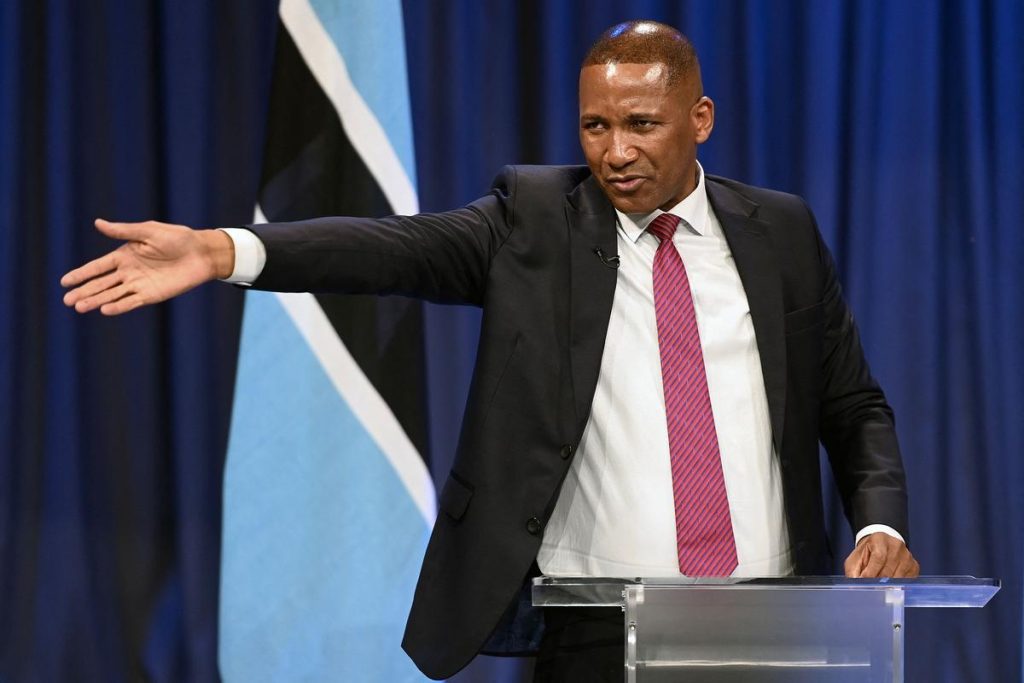The political architecture of Botswana has taken a seismic change after the immediate past president, Mokgweetsi Masisi, conceded defeat in the recently concluded presidential election. With this, the Botswana Democratic Party (BDP)’s 58-year reign comes to an end in the country.
On Friday, November 1, 2024, the Motswana voters unseated President Masisi and the ruling Botswana Democratic Party, ending the reign that lasted almost three decades in a shocking and humiliating defeat. Consequently, the emerging Duma Boko of the Umbrella for Democratic Change (UDC) has been sworn in by the country’s Chief Justice and the plans for handling over have been underway.
Table of Contents
Botswana’s Independence and the Reign of BDP
Botswana, a Southern African country, gained independence from its British colonial rulers on September 30, 1966. The newly formed nation, under the leadership of Sir Seretse Khama, began the journey to stability and economic prosperity, a journey that started as hopeless and helpless.
Meanwhile, a few years before independence, in November 1961, Sir Khama created the Botswana Democratic Party alongside other delegates to the African Advisory Council in Lobatse .This party would later play a critical role in achieving independence five years later.
Sir Seretse Khama remained in power until his death in July 1980, having spent more than 13 years in office. A few days later, President Quett Masire, another member of the Botswana Democratic Party would proceed to take over where Sir Khama left. Masire remained in power until March 1998, having served more than 17 years in power and a total of three terms of office.
In 1997, President Masire would later establish the Botswana presidential term limit, limiting a president’s regime to 5 years and a maximum of two terms which may be concurrently or not. The first president for this to apply is Festus Mogae who was president from April 1999 to April 2008. Other presidents are Ian Khama from April 2008 to April 2018, and the immediate past president, Mokgweetsi Masisi who served from April 2018 to 1st November 2024, all of whom are members of the BDP.
In a surprising turn of events, the country’s history will change with the victory of President Duma Boko in the November 1st election, becoming the first person not a member of BDP to head the country. But the major question is “What has gone wrong with the party that made Batswana tired of BDP’s reign?”
The Downfall of BDP and the End of Her58-Year Reign
When it comes to the manifesto, BDP’s manifesto is something to write home about, delivering idealistic and appealing promises to Batswana. However, there exists a major problem that will lead to the party’s downfall –the lack of clear focus. While idealism is great, people want to see some actual policy directives, too. BDP failed to provide a clear approach to tackling the main issues that affect the average Motswana.
For instance, the figures suggest that the economic and living conditions for the average Motswana are better than most other African countries, however, this is not necessarily true as there is a great level of economic inequality ravaging the country. In a testament to this, the World Bank’s Gini index revealed that Botswana has the 10th greatest income inequality of any country in the world. This could be attributed to the structuring of Botswana’s economic output.
Furthermore, the capitalization of diamond mining, which accounts for one-third of the country’s GDP and more than 80% of export revenue has created a bigger economic problem and added to the cause of economic inequality plaguing the country. For instance, the mining industry has only employed about 10,000 people, leaving room for a high unemployment rate among the youth.
Additionally, the rapidly growing youth population of the country calls for a more diversified economy that caters for the youth’s needs, reduces employment rates, and ensures a proper dividend of the country’s wealth. These, the BDP have failed to achieve during their 58-year reign despite having acknowledged the problems a plethora of times and promised to deal with them.
President Boko and the UDC Party
Having noticed these cracks and riding on the grievances of the Batswana, President Duma Boko of the Umbrella for Democratic Change (UDC) clinched the victory in the Friday election, defeating Masisi by a landslide. With this, President Boko became the first opposition to become Botswana president, ever.
Duman Boko is a trained lawyer, who graduated from the University of Botswana and Harvard Law School. He dedicated most of his attorney career to fighting for human rights and he’s a known human rights activist in the country. After completing his master’s degree at Harvard Law School in 1993, he returned to his alma mater where he worked as a lecturer until2003,all the time running his law firm on the side.
President Boko emerged as the leader of the Botswana National Front (BNF) in 2010, despite facing lawsuits challenging his membership. He would later merge the party with the Botswana Movement for Democracy (BMD) to form the reigning Umbrella for Democratic Change (UDC) and become the party leader in 2012.However, he didn’t just rise from being a party leader to Botswana president. Boko has contested and lost his presidential bid twice in 2014 and 2019 before finally clenching the victory on his third trial in 2024.
Expectations and Aspirations of Batswana
The outcome of this election is indeed shocking, given how difficult it can be to unseat a sitting president in an election. However, this is not the end of the story. It is, perhaps the beginning of a new story to unfold. While President Boko has seen his victory as a giant leap in the country’s democracy and promised to put Botswana first, the citizens, though excited for the outcome of the election, can only be hopeful of what is to come.

